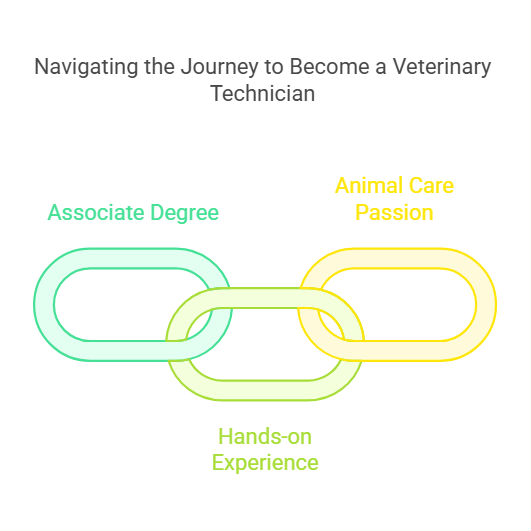how many years of school to be a vet tech
how many years of school to be a vet tech Becoming a veterinary technician (vet tech) is a rewarding career choice for those passionate about animals and their care. Vet techs play an essential role in veterinary clinics, assisting veterinarians in diagnosing and treating animals, performing medical tests, and providing compassionate support to pet owners. But how many years of school does it take to become a vet tech? Let’s dive into the educational journey and requirements.

The Basics of Vet Tech Education
To become a licensed veterinary technician, you typically need to complete an associate degree in veterinary technology. These programs are specifically designed to equip students with the knowledge and hands-on skills required to succeed in the field. Here’s a closer look at the timeline:
1. High School Diploma or GED (4 Years)
Before you can enroll in a vet tech program, you’ll need to complete high school or obtain an equivalent qualification like a GED. During high school, focusing on science courses such as biology and chemistry can provide a strong foundation for your future studies.
2. Associate Degree in Veterinary Technology (2 Years)
Most aspiring vet techs enroll in a two-year associate degree program accredited by the American Veterinary Medical Association (AVMA). These programs are offered at community colleges, technical schools, and some universities. The coursework typically includes:
- Anatomy and physiology of animals
- Animal nursing and clinical skills
- Pharmacology and anesthesia
- Laboratory and diagnostic testing
- Veterinary ethics and laws
In addition to classroom learning, students complete hands-on clinical training through internships or externships. This practical experience is vital for developing the skills needed to work effectively in a veterinary setting.
3. Licensing and Certification (Varies by State)
After earning your degree, you’ll need to pass the Veterinary Technician National Exam (VTNE) to become a licensed or registered veterinary technician (RVT or LVT). Some states may have additional licensing requirements, such as state-specific exams or continuing education credits.
Optional Steps to Advance Your Career
While most vet techs start their careers with an associate degree, some choose to pursue further education or specialization:
4. Bachelor’s Degree in Veterinary Technology (2-4 Years)
A bachelor’s degree can open doors to advanced roles, such as hospital management, research positions, or teaching opportunities. These programs build on the foundation of an associate degree and often include courses in advanced clinical techniques, leadership, and veterinary business management.
5. Specialization and Certification (1-3 Years)
Vet techs interested in specializing can pursue certifications in areas such as dentistry, anesthesia, emergency care, or zoological medicine. The process typically involves additional coursework, hands-on experience, and passing a certification exam offered by a professional organization like the National Association of Veterinary Technicians in America (NAVTA).
Total Time to Become a Vet Tech
For most aspiring vet techs, the journey takes about two to three years after high school to complete the necessary education and certification. If you decide to pursue a bachelor’s degree or specialize, the timeline can extend to four to seven years total.
Benefits of a Career as a Vet Tech
While the educational path is relatively short compared to many other healthcare professions, becoming a vet tech offers numerous rewards:
- Job Growth: According to the U.S. Bureau of Labor Statistics, demand for vet techs is expected to grow much faster than average in the coming years.
- Versatility: Vet techs work in various settings, including clinics, animal shelters, research facilities, and zoos.
- Fulfillment: Helping animals and their owners can be incredibly satisfying for those passionate about animal welfare.
FAQs About Becoming a Vet Tech
1. How much does it cost to become a vet tech? The cost of an associate degree in veterinary technology typically ranges from $10,000 to $30,000, depending on the institution and location.
2. Can you become a vet tech without a degree? In most states, formal education and passing the VTNE are required to work as a licensed vet tech. However, some states may allow on-the-job training for unlicensed roles, like veterinary assistants.
3. What skills are essential for vet techs? Key skills include communication, attention to detail, physical stamina, and compassion for animals and their owners.
4. Are online vet tech programs available? Yes, many institutions offer online vet tech programs. However, students must complete in-person clinical training to meet accreditation requirements.
5. What is the average salary of a vet tech? The average salary for vet techs in the U.S. is around $36,000 per year, though this can vary based on experience, location, and specialization.
Meta Description
“Wondering how many years of school it takes to become a vet tech? Learn about the education, licensing, and career opportunities in veterinary technology.”
